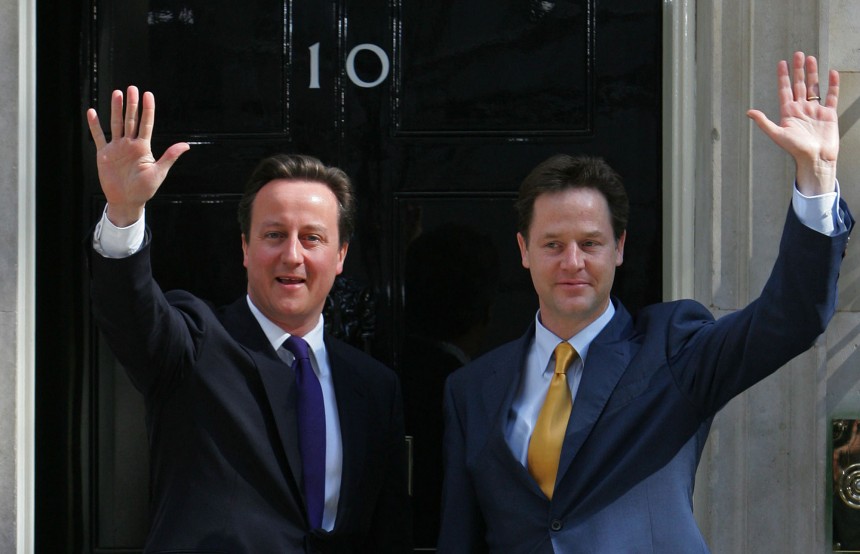Lord Gus O’Donnell: ‘There is public foreplay, we shall see what is consummated’

David Cameron and Nick Clegg in 2010
Lord Gus O’Donnell who served as cabinet secretary under three prime ministers and crucially during 2010s coalition negotiations has given a fascinating behind-the-scenes insight into the election.
While the world was focused on the famous joint press conference in the rose garden, five years ago, between David Cameron and Nick Clegg, thousands of civil servants were trying to figure out how to deal with an almost unprecedented scenario of a coalition government.
He says that there were not many people alive who had experienced one in Britain before – but, he adds, it was a “piece of cake” in comparison to what we could be left with on May 8.
The civil service, he says “will be preparing for all sorts of options, and this time round I think they will include minority governments and possibly some kind of mix, there could be a party in coalition with a second party but having a supply and confidence deal with a third party.”
“There is public foreplay, we shall see what is consummated”
O’Donnell says that the parties are already “signalling” to each other about what is important – they won’t commit to “red lines” but they say things like “this is on our front page” – for the Lib Dems this morning that is a substantial increase in education spending.
Coalition negotiation will take longer this time
It could be a complicated grouping with separate informal deals with other parties, or it could be that because coalition is more familiar parties will be more entrenched about what they want – but he predicts that whoever attempts to form the coalition will take longer thrashing out the deal this time around. He also adds that the Lib Dems and Conservatives know each other very well now and know what is important to whom.
Coalition could mean less laws
He adds that the civil service will be studying precedents and tactics for what worked in previous coalition governments which worked in the UK – although you have to go back to the 1940s to find them. He says: “What you are trying to do is to get to a stable effective government.”
Civil servants trying to serve complex coalition governments are loathe to go to the House of Commons with too many contentious issues so they try and find “other ways” of doing things. This he says could end up with fewer laws being made, no bad thing he says if they are fewer, but better thought through.

